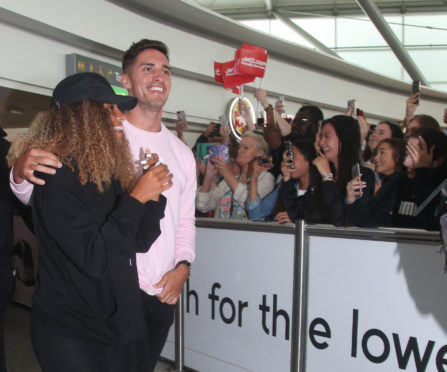What can a dating programme involving a bunch of image-obsessed twenty year olds possibly teach us?
Well, quite a lot actually. That was the conclusion I reached after watching Love Island for the first time.
In the run-up to the latest series there was the tragic suicide of a guest on the Jeremy Kyle programme and warnings that contestants on reality TV shows were being abandoned to cope with their new-found fame without support, and with tragic consequences.
I decided I should find out for myself what the fuss was all about, much to the horror of my partner. Ignoring his protests, I switched on, expecting a cringe-making Big Brother style show, where contestants alternatively screamed at one another and then hopped in and out of each other’s beds.
Whilst there was a small element of this, overall I was pleasantly surprised and even heartened by the messages the show was sending out. It addressed some of the biggest issues facing young people today.
I watched a group of young men and women behave with remarkable calm and self-assurance in an intense environment. I was impressed with the heavily tanned, bleach blonde influencer Molly Mae, who reacted with maturity and empathy when she discovered her friend and housemate had been harbouring a secret love for her boyfriend.
She wasn’t the only one. When sweet Amy was told by the ‘love of her life’ Curtis that he couldn’t promise to be faithful, she didn’t demean herself with a desperate pursuit, but walked away from him, the house and the prospect of fifty grand to preserve her dignity and allow him to move on.
All the girls refused to let any man’s fickle behaviour destroy their self-respect or self-worth. They stopped wearing make-up during the day and, although they were all slim, there were a variety of body shapes and plenty of wobbly bits hanging out.
But it wasn’t just the girls who impressed me. The boys gave each other really good advice (with one exception) and smoothed over arguments with tact and skill. They were supportive and weren’t embarrassed to reveal their deepest emotional feelings, finding kindness and support in return. We watched a boxer and a basketball player, amongst others, to defuse tension and behave with gentleness and generosity, even when it came to watching a housemate make a move on the girl they fancied.
This is a programme watched by millions of young people – four million tuned into the final. As far as I’m concerned, it’s sending out some very valuable messages.
In recent decades, Scotland has suffered from a devastatingly high suicide rate, with young men accounting for most of the deaths. One of the driving factors is their reluctance to talk about their problems with each other. Here is a programme where attractive young influential men with aspirational lifestyles are showing that it’s completely normal to share your feelings.
Meanwhile Scotland’s teenage girls – faced with a cocktail of pressures to look like airbrushed models and meet the expectations of boys whose sex education comes from porn sites – would do well to learn from the behaviour of the Love Island contestants. They openly talked to each other about sex on Love Island, and also talked to their partners about it.
Some older viewers may have found that outrageous but is actually a healthy sign. European countries with the most open attitudes to sex have the lowest teenage pregnancy rates. (The UK has one of the highest). A girl who is confident talking about her body, needs and desires, will be confident enough to say ‘no’ in the bedroom.
Okay, okay, I’ll admit it wasn’t all good. Sometimes the girls gave really bad advice to each other and were immature and catty. Some of the boys played fast and loose with the feelings of their partners. But they are only twenty-something, after all.
As for the support for contestants, I noticed that the production team engineered activities to diffuse tension, such as the private dinner that love-rivals Amber and Joanna were forced to have, which started in silence but ended on friendly terms. I hear that it wasn’t always this way on the programme, but it was certainly a world away from the tension deliberately created in the Big Brother house and clearly didn’t lessen the interest of viewers.
Once the contestants leave the villa their lives will have changed forever and I don’t doubt that they will find it hard to adjust. But a lot of people are faced with fame for a variety of reasons. At what point does the programme’s responsibility end, when these people have applied for the show knowing that fame is the consequence, and probably part of the attraction?
ITV has announced that Love Island will now air twice a year. I’m not sure I can commit the time to another series. But if you have teenage children, you could do a lot worse than watch it with them. This TV ‘trash’ demonstrates some valuable life skills and is a hoot into the bargain.
Eleanor Bradford is a former BBC Scotland health correspondent and now works for a communications agency

